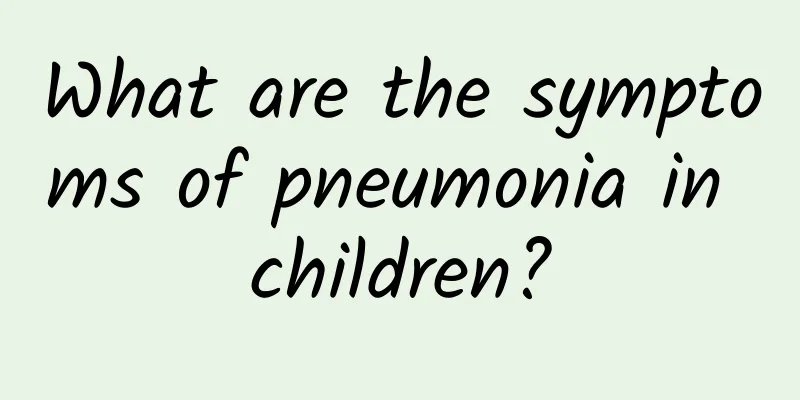What is the cause of Hirschsprung's disease in children?

|
Hirschsprung's disease in children is mainly caused by abnormal migration of neural crest cells during fetal development. This condition usually involves the combined effects of genetic factors, physiological factors, and environmental factors. In view of the occurrence of this disease, timely diagnosis and treatment are needed to improve the quality of life of children with the disease. 1. Genetic factors: This disease has a certain genetic tendency, and children with a similar family history are more likely to develop the disease. Studies have shown that mutations in the RET gene and other genes related to the development of neural crest cells may increase the risk of disease. Couples with a family history of the disease should undergo genetic counseling and related tests before pregnancy. 2. Environmental factors: Some environmental factors or maternal infections during pregnancy may interfere with the normal development of the fetus. For example, if the mother is exposed to certain toxic chemicals, drugs or infected with some viruses during pregnancy, it may affect the normal development of neural crest cells and increase the risk of disease. 3. Physiological factors: During the development process, the neural crest cells of the embryo cannot migrate normally to form ganglion cells that control intestinal movement, resulting in the inability of the intestine to move and empty effectively, thus causing megacolon symptoms. Children with megacolon usually show severe constipation and abdominal distension in the neonatal period. When these symptoms occur, they must be taken seriously and medical diagnosis should be sought in a timely manner. 4. Treatment: For children with Hirschsprung's disease, the most important treatment measure at present is surgical resection of the diseased non-nervous segment of the intestine. Commonly used surgical methods include Soave, Swenson and Duhamel. Timely surgical intervention can effectively improve the symptoms of children and prevent the occurrence of complications. Hirschsprung's disease in children is a serious disease caused by the combined effects of complex genetic, environmental and physiological factors. When symptoms are found, you should seek medical attention and undergo a comprehensive examination in a timely manner. After the diagnosis is clear, appropriate surgical treatment can significantly improve the prognosis of the child and improve his or her quality of life. Paying attention to pregnancy health and consulting genetic experts can also help reduce the incidence rate and realize the family's fertility plan. |
>>: Causes of Hirschsprung's disease
Recommend
Is it necessary to use blue light for newborns with high jaundice?
Newborns with high jaundice do not necessarily ne...
What to do if you have jaundice and yellow urine
The treatment of jaundice with yellow urine inclu...
Is it necessary to get the 13-valent pneumonia vaccine?
13-valent pneumonia generally refers to the 13-va...
Symptoms of mumps
Symptoms of mumps: Symptoms of mumps generally in...
How to cure diarrhea in children
Because children have weak resistance, they are o...
Symptoms of allergic cough in children
Its main clinical symptom is cough, most of which...
Three meals recipes for children with pneumonia
Pneumonia is a common disease in recent years, an...
Why do babies have jaundice? Detailed analysis of the 4 reasons why babies may have jaundice
If the baby has jaundice, it may have a certain i...
How to reduce jaundice in children quickly
Neonatal jaundice is common, but if the level of ...
What causes yellow hair? Is yellow hair caused by excessive radiation?
There are many reasons for yellow hair. In additi...
Prevention of pneumonia in children starts from five aspects Daily dietary taboos for pneumonia in children
Pediatric pneumonia is a relatively common respir...
How to treat patent ductus arteriosus
How to treat patent ductus arteriosus? Patent duc...
What are the common home care methods for patients with Kawasaki disease?
Every parent hopes that their children can live a...
What are the hazards of acute laryngitis in children?
What are the dangers of acute laryngitis in child...
What harm does diarrhea in children bring to patients
What parents hope to see is that their children c...









